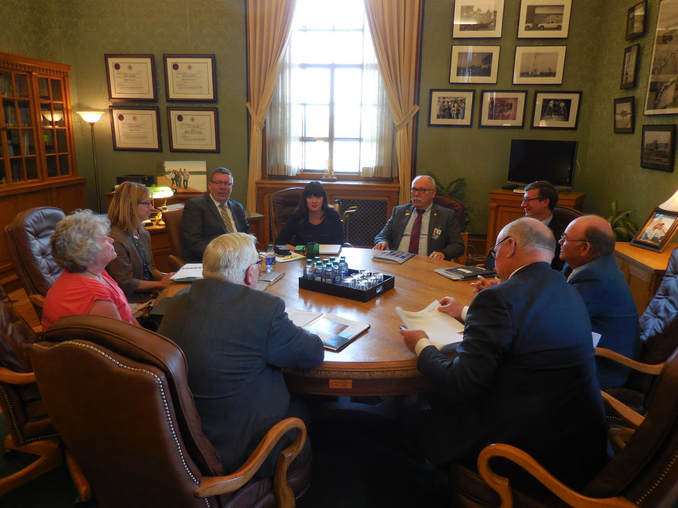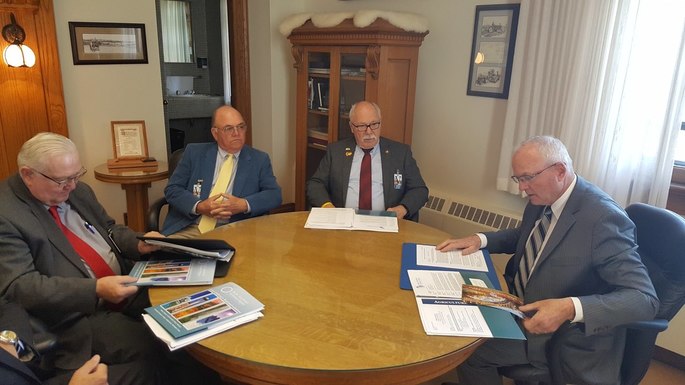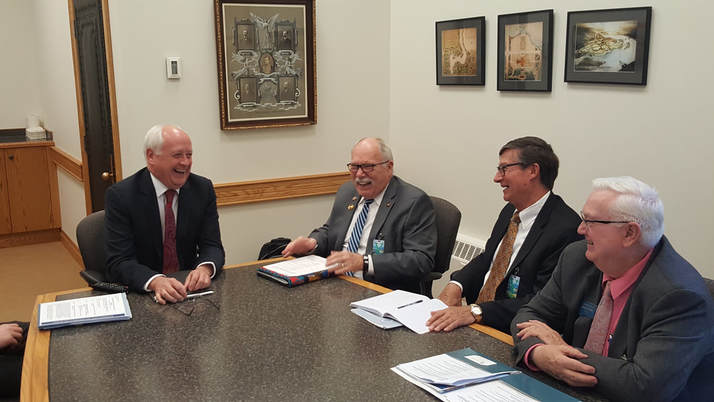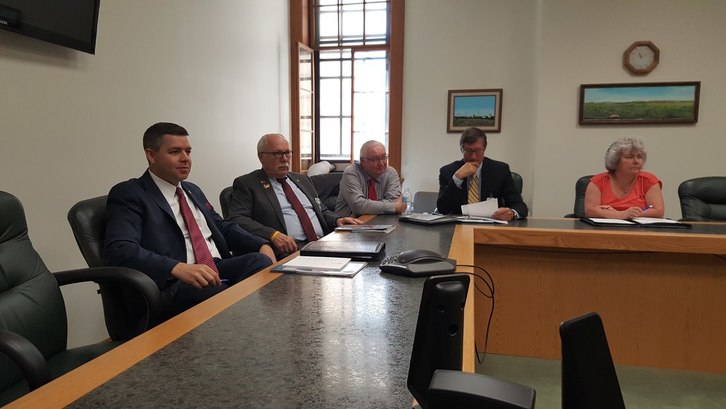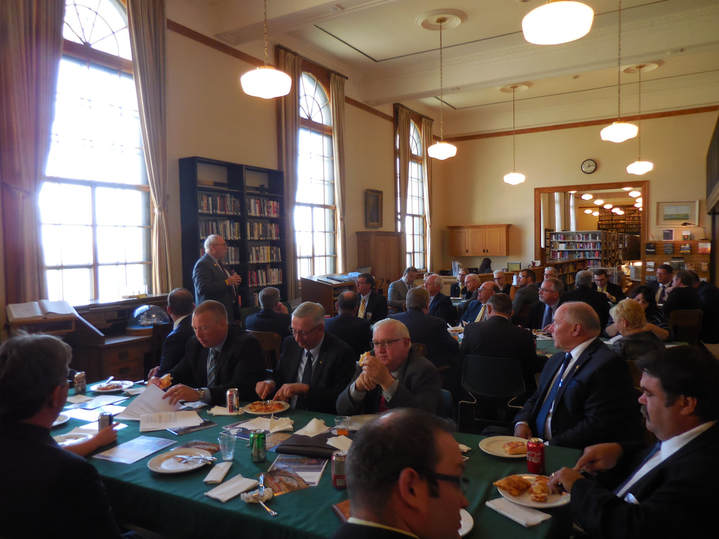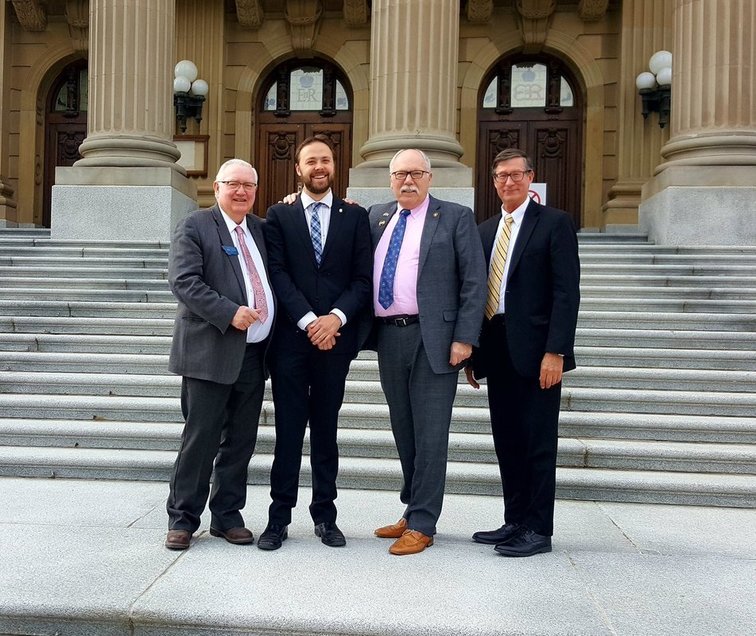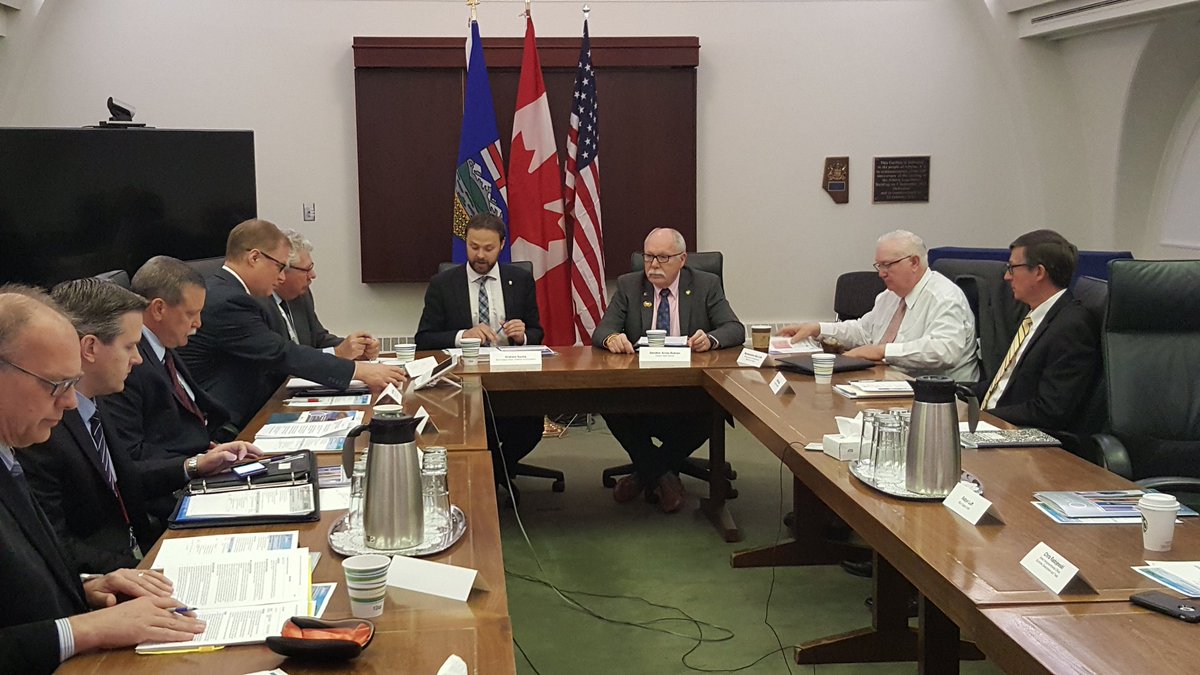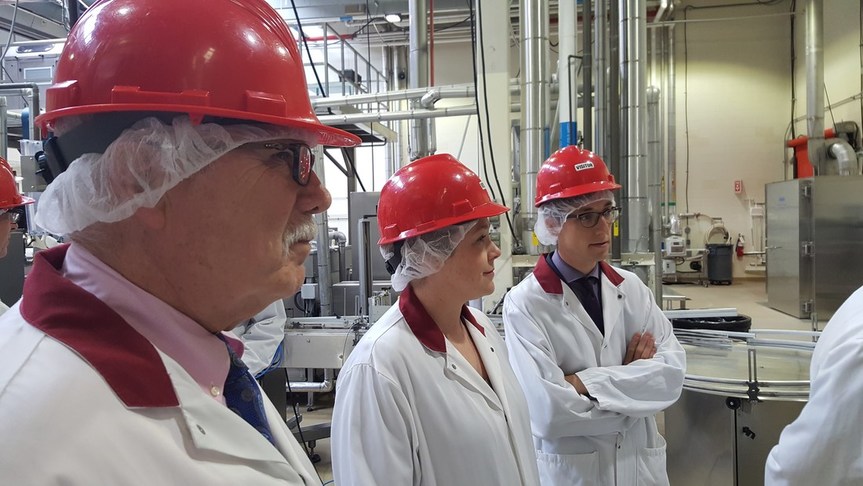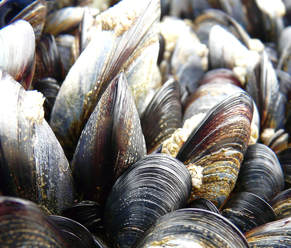 Photo by Tristan Ferne Photo by Tristan Ferne The Pacific Northwest Economic Region (PNWER) works with various stakeholders in the Northwest States and Western Canadian Provinces on securing federal funding to combat invasive mussels including support for watercraft inspection stations. For the past several years the US Congress has appropriated matching funds for the operation of watercraft inspection stations to protect the Columbia River Basin against quagga and zebra mussel infestation. The Senate Environment and Public Works Committee just approved an authorization bill for increased funding for Columbia River Basin protection efforts. This increase will be a great opportunity to leverage the Federal matching funds to double the Northwest States' budgets. Additionally, Congress is in the process of appropriation legislation to continue match funding of inspection stations. Both of these bills are tremendous examples of federal and state cooperation on a critical challenge that could cost the region hundreds of millions of dollars. PNWER has worked with Northwest state and Western Canadian provincial legislators, agencies; U.S. Federal legislators and officials; as well as regional nonprofit associations to support and organize the region’s defense against invasive mussels for the past several years. Recently, PNWER with regional partners and the assistance of our congressional delegation have been able to secure $15 Million U.S. Federal matching funds for watercraft inspection stations programs in the Northwest. The Senate Environment and Public Works Committee on Thursday, May 22 unanimously passed Senate Bill S. 2800 - America's Water Infrastructure Act of 2018. Section 1024 of this bill reauthorizes Federal one-to-one matching funds from the Army Corps of Engineers to states with watercraft inspection stations programs. These inspection stations work to protect the Columbia River Basin from invasive species such as quagga and zebra mussels. The latest bill increases overall Federal funding level in addition to the Columbia River Basin and authorizes new matching funds for the Upper Missouri River protection operations. In the Senate bill, the overall authorization will increase from $40 Million to $80 Million in funds for all aquatic control activities each year. The Pacific Northwest is the only region in the United States that does not have established populations of invasive quagga or zebra mussels, which multiply quickly and are easily transported across jurisdictions on boat hulls and in ballast tanks. Quagga and zebra mussels disrupt native fish habitats and destroy aquatic ecosystems in infested waterways. An invasion will rapidly foul and damage the operations of hydropower, irrigation, fish hatcheries, and municipal water facilities vital to our region’s economy at a cost of $500 million annually, according to an economic impact assessment for the region. Related to Federal invasive species funding, on May 24 the Senate Appropriations Committee advanced the FY2019 Energy and Water Development Senate Bill S. 2975 and Related Agencies Appropriations Act. The appropriation funds programs and critical infrastructure projects administered by the Army Corps of Engineers and Bureau of Reclamation authorized in Section 1039 of the WRRDA related to invasive species watercraft inspection stations in the Columbia River Basin. This appropriation will continue to match up to $ 6 million in Federal funds. The Pacific NorthWest Economic Region (PNWER) is a public/private non-profit created by statute in 1991. Member jurisdictions include Alaska, Idaho, Oregon, Montana and Washington, and the Canadian provinces and territories of British Columbia, Alberta, Saskatchewan, the Northwest Territories and Yukon. PNWER's mission is to increase the economic well-being and quality of life for all citizens of the region; identify and promote "models of success;" and serve as a conduit to exchange information. Background: Aquatic Plant Control Program. Of the funding recommended for the Aquatic Plant Control Program, $1 million shall be for activities for the control of flowering rush. Of the funding recommended for the Aquatic Plant Control Program, $5 million shall be for nationwide research and development to address invasive aquatic plants; within this funding, the Corps is encouraged to support cost-shared aquatic plant management programs. Of the funding recommended for the Aquatic Plant Control Program, $6 million shall be for watercraft inspection stations, as authorized by section 1039 of the WRRDA, and related monitoring. PNWER report: Advancing a Regional Defense Against Dreissenids in the Pacific Northwest The past week—officially (and ironically) dubbed “World Trade Week” by the US White House (link) — witnessed significant trade policy developments for automotive manufacturers and suppliers. However, the deadlines presented in the coming week (May 28-June 2) may lead to even greater disruption in the auto and advanced manufacturing sectors and require close attention.
You can find background on these developments, as well as a sampling of Dickinson Wright’s comments in global media, as follows:
Looking ahead to next week, Dickinson Wright encourages companies to be aware of the following five (5) trade issues: 1.Section 232 Investigation into Auto Imports— The “headline-grabbing” news of the past week was that US President Donald Trump ordered the US Department of Commerce (DOC) to launch a Section 232 national security investigation into automobile imports. It was reported that President Trump asked for additional tariffs between 20-25%. According to a statement issued by DOC, the investigation will “determine whether imports of automobiles, including SUVs, vans, light trucks, and automotive parts into the United States threaten to impair the national security.” (Emphasis added.) The Secretary of Commerce has 270 days to conduct an investigation and present the DOC’s findings and recommendations to the President. If the Secretary finds that an import threatens to impair US national security, the President shall determine whether he agrees with those findings within 90 days. If so, he must determine what, if any, action to implement to “adjust” the imports of the article in question so that they will not threaten to impair national security.
2.Section 232 Steel and Aluminum Tariffs—Of greatest immediate impact, the deadline for the Trump Administration to extend or grant country exemptions from the Section 232 steel and aluminum tariffs is fast approaching, without any resolution in sight. The Trump Administration has already imposed 25% tariff ad valorem on steel and 10% ad valorem on aluminum imports into the United States from all countries (as of March 23, 2018), with the exception of a few countries as to which the Trump Administration is negotiating country-wide exemptions from tariffs, including Canada, Mexico, and the European Union. Only South Korea has received a permanent exemption from the tariffs, in exchange for concessions in trade negotiations and establishing quotas (which are largely filled). It is highly unlikely that any new major country exemptions—such as for Japan—will be granted. Dickinson Wright also anticipates, barring any developments over the next week, that it is unlikely that the EU and Mexico will continue to have country exemptions beyond . Similarly, it is unlikely that Canada will maintain its country exemptions. Again, Dickinson Wright does not expect Canada, Mexico, and the EU to have country exemptions past June 1 unless there is significant developments over the next week.
Additionally, Canada, Mexico, and the EU (as well as other affected countries) thereafter will publish lists of items upon which that country will impose retaliatory tariffs. These products include steel and aluminum products as well as any product that may be of practical and political importance to the US (there is no requirement that it be linked to steel and aluminum production). It is imperative that companies monitor those retaliation lists to ensure that its goods will not be impacted by retaliatory tariffs. In the event that retaliatory measures impact a company, Dickinson Wright can assist with working with the foreign government to potentially minimize the consequences. 3.NAFTA—The past week witnessed a flurry of activity targeting the NAFTA modernization process. While there were several reports of potential concessions that were made by Mexico and the US over the past week, Dickinson Wright’s current intelligence is that the negotiations are at an impasse. Automotive Rules of Origin (ROO) are at the top of several key sticking points. Specifically, the US presented it most recent auto ROO “proposal” (without formal text) in late April/early May, which the Mexican negotiating team considered and countered during the week May 7. While Mexico’s counterproposal included all of the key “elements” contained in the US proposal—including wage requirements and a steel and aluminum threshold—the parties differed on the number/percentages. Mexico also required that, in exchange for its concessions on auto ROO, the US would make concessions on other controversial areas such as a “sunset clause” (reauthorizing the NAFTA every five years), seasonal produce, and dispute resolution. The US immediately rejected the proposal and Mexico withdrew its request. No new offer has been tabled by any party. The US proposal was a 75% top line regional value content for auto ROO, of which 40% (45% for light duty trucks) of the final assembly must be produced at the North American Average Wage (approx. $15-$17). Up to 15% (20% for light duty trucks) of that North American Average Wage requirement could include R&D, marketing, sales, etc. salaries. The US proposal also required that 70% of all steel and aluminum originate in North America. The US further proposed 2, 4, and 9 year phase-in requirements, depending on the components, with autonomous and electric vehicles having the longest phase-in period. For its part, Mexico advanced a top-line RVC of 70% (as opposed to the US’ 75%) of which 20% (30% for light duty pickup) must be assembled at the North American Average Wage. Mexico counter-proposed steel (30%) and aluminum (20%) thresholds. Mexico’s counterproposal included a 10 year phase-in period. Mexico’s overarching concern was that only a limited percentage of its auto production could comply with all of the elements. Consequently, Mexico’s proposal included certain options/credits for companies that complied with some, but not all, of the elements. The full contours of that component of the proposal remain unclear and may be in flux. The inability to reach an agreement in principle on auto ROO has prevented the parties from reaching any resolution. Over the course of the past ten days, the US, Canada, and various stakeholders have floated the idea of a “skinny NAFTA”, relying on only the US Executive Branch (and not Congress) to “tweak” the NAFTA. The purest form of the “skinny NAFTA” would be to have updated auto ROO provisions and a few other “fresh coat of paint” upgrades in areas such as anti-corruption. More legally tenuous is to move the “skinny NAFTA” to a “fast NAFTA” which would have provisions on digital, customs and trade facilitation, as well as “quick-hits on dairy and other issues. There has been significant push-back from Congress, including from the chairman of the influential House Ways and Means Committee, as well as labor, on the “skinny NAFTA” option. While “skinny NAFTA” has some surface appeal as it would minimize any potential harm from the negotiations, the fall-out could bring the NAFTA closer to withdrawal. In short, faced with pushback that he is soft on NAFTA, the President will overreact. Dickinson Wright’s view is that the parties will proceed for a full NAFTA, which will take time to resolve major outstanding issues such as auto ROO, government procurement, supply management, dispute resolution, textiles, and intellectual property rights. Unfortunately, the parties are out of time under various domestic processes to reach a deal and submit for ratification by the close of 2018. There will not be a fully ratified NAFTANEXT in 2018.
4.China—Negotiations between the US and China will continue, with Secretary Ross visiting China in the coming weeks. China is starting to announce reductions in tariffs such as a new 15% auto tariff (down from 25%) and promotion of purchasing US goods. Pushback to the President’s efforts has been severe, with the US Senate passing a bill preventing the implementation of one deal element (easing trade remedies on China’s ZTE) and labor vocally challenging the President’s commitment to “get tough” on China. The politics of 2018 and 2020 will be determined by how the President handles China. Success could bring victory. Pushback, or allegations of the President easing up on China, could encourage wild extremes of actions and policies. 5.Trade Promotion Authority 2015 Extension—All of this activity is occurring against the backdrop of the President’s Trade Promotion Authority (TPA aka “fast track”) expiring on . While TPA has no role in Section 232 tariffs, it is the primary authority through which the President is negotiating the NAFTA and potentially will deal with UK, Japan and others. Pursuant to the statute, the President requested an extension of TPA until 2021. While Congress is not required to affirmatively approve the extension, Congress may file a “disapproval resolution” of the request. Up until this week, conventional wisdom was that the extension would smoothly sail through Congress; however, Congress may use June to “flex its muscles on trade.” A report on the extension is due from the International Trade Commission by . It may be worth a read and TPA extension may become the talk of June Dickinson Wright is engaged in all of these activities. We are happy to discuss and assist at any time. Best, Dan Daniel D. Ujczo Practice Group Chair - Intl & Regional Practices Saskatchewan Capital Visit | May 14-15Meetings with: His Honour the Honourable W. Thomas Molloy, Lieutenant Governor of Saskatchewan Honourable Scott Moe, Premier of Saskatchewan Honourable Lyle Stewart, Minister of Agriculture Honourable Dustin Duncan, Minister of the Environment Honourable Jeremy Harrison, Minister of Trade and Export Development Honourable David Marit, Minister of Highways and Infrastructure Honourable Bronwyn Eyre, Minister of Energy and Resources Honourable Mark Docherty, Speaker of the Legislative Assembly Ms. Carla Beck, Deputy Leader of the Official Opposition Mr. Greg Brkich, Government House Leader PNWER Delegation:
PNWER Officers and staff had a productive visit to Saskatchewan with individual meetings with six different ministers and the Premier and several other leaders in the legislature. NAFTA and trade were front and center in nearly all the meetings, with Agriculture, Transportation and Energy as key priorities for the province. PNWER Officers also discussed market access and cross border impacts to transportation and opportunities to partner with other states and provinces to increase throughput capacity. PNWER officers discussed several current projects involving our jurisdictions, such as the Legislative Energy Horizons Institute (LEHI) and recent efforts to address tariffs on Canadian steel and aluminum and newsprint. During a well attended luncheon with all the MLAs, Vice President Larry Doke invited everyone to be part of the host committee for the PNWER Summit in 2019, scheduled to be held in Saskatoon, SK on July 21-25, 2019. 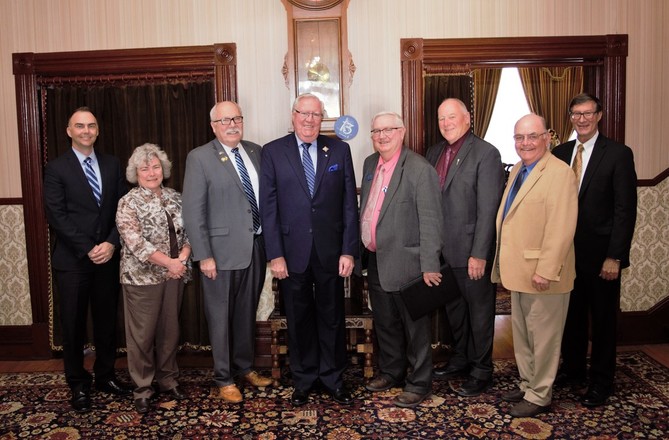 PNWER Delegation with the Lieutenant Governor of Saskatchewan, Thomas Molloy (middle). (From left to right,) Brandon Hardenbrook (PNWER), Shawna Argue (APEGS), Sen. Arnie Roblan (PNWER President, Oregon State Legislator), Rep. Mike Cuffe (PNWER Vice President, Montana State Legislature), Mr. Larry Doke (PNWER Vice President, Saskatchewan MLA), Ret. Senator John Brenden (Montana), Matt Morrison (PNWER Executive Director) 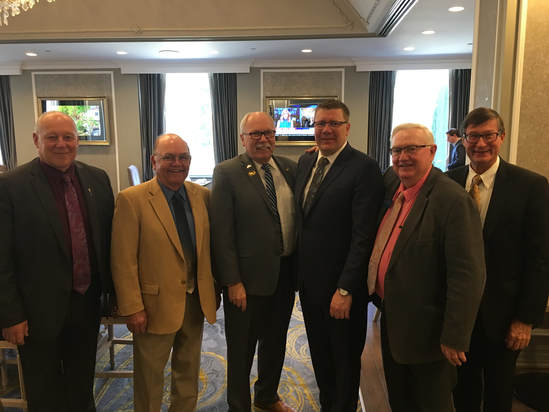 PNWER Delegates with the Premier of Saskatchewan, the Honourable Scott Moe. From left to right, Mr. Larry Doke (MLA, Saskatchewan, PNWER Vice President), Senator John Brenden (Montana), Sen. Arnie Roblan (Oregon State, PNWER President), Premier Scott Moe (Saskatchewan), Rep. Mike Cuffe (Montana State, PNWER Vice President), Matt Morrison (PNWER Executive Director). Senator Arnie Roblan speaks during the Pizza Lunch Meet & Greet, held in the Legislative Library, nearly all MLA’s attended. Alberta Capital VisitMeetings:
PNWER Delegation:
PNWER delegates had the chance to meet with a variety of different groups in Alberta. Wednesday morning, May 16, started off with a Roundtable discussion with members of the Alberta Government. Later that afternoon, PNWER delegates visited the Food Processing Development Centre and toured the facilities.
House Speaker Paul Ryan's May 17th deadline has come and gone without a new deal on NAFTA. This was originally the deadline for the Trump administration to submit a trade deal in order to have it voted on by the current congress before the end of the session.. This makes a NAFTA deal in 2019 now more likely than ever.
However, Canada and Mexico are not deterred by Ryan's deadline and remain optimistic about reaching a deal soon. Mexican Economy Minister Ildefonso Guajardo has said a deal in late May or early June is still possible (Mexico elects a new president on July 1st). In addition, on Thursday Ryan extended his deadline, saying that a deal produced in the next week or two could still be voted on by this congress. That would only be possible if the International Trade Commission can finish their review of the deal in less than the allotted 105 days after signing. Issues that still need to be solved: Auto manufacturing rules of origin, steel and aluminum tariffs, the dispute resolution mechanism, the sunset clause, seasonality tariffs, textiles, dairy market access, de minimis and ecommerce rules. If the parties cannot agree on a deal before these deadlines, an agreement in principle that would calm markets and lay a groundwork for next year is more likely. In late April PNWER issued a revised statement calling for a continued exemption of steel and aluminum tariffs from Canada which was extended another month. PNWER also issued a statement opposing tariffs on newsprint from Canada. In Other NAFTA News: Saskatchewan Premier Moe says NAFTA needs an update not a rewrite following first U.S. summit - Global News Christopher Sands on The Risks of Missing the May Deadline for NAFTA 2.0 - CSIS A new NAFTA will probably not get done this year. Now what? - POLITICO Trump’s Goal for Nafta Rewrite Looks Unattainable in 2018 - The Wall Street Journal Time is running out on NAFTA, as U.S. grapples with China over trade - CBS News Kudlow Says Nafta Deal Is Test of Trump Trade Cooperation - Bloomberg Contributions by Zack Tarhouni, PNWER Intern Christoper Sands, Senior Associate, Americas Program at the Center for Strategic and International Studies reviews the consequences of delaying NAFTA agreement at https://www.csis.org/analysis/risks-missing-may-deadline-nafta-20
|
Archives
August 2023
Topics
All
|
|
World Trade Center West
2200 Alaskan Way, Suite 460 Seattle, WA 98121 |
|

